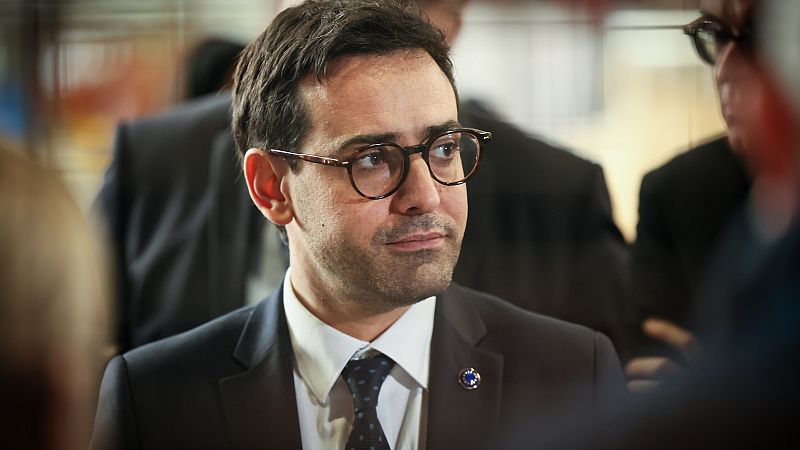Nuclear sidelined in leaked rules on state aid for clean tech

The European Commission appears to be limiting the role for nuclear power in its flagship policy to boost EU industry through support for a transition to clean tech, potentially putting it on collision course with pro-nuclear countries such as France, a leaked document suggests.
The draft framework for state aid measures lists a plethora of technologies, solar and wind power infrastructure to batteries production, and the conditions where countries would be allowed to diverge from normally rigid single-market rules that prohibit national governments from subsidising their domestic industries.
Crucially, nuclear power appears to be largely excluded from the production of hydrogen, a clean energy carrier that is set to play a crucial role in decarbonising steelmaking, the production of chemicals, and other sectors that currently rely on fossil fuels and produce huge volumes of greenhouse gases.
For a project to qualify for state aid, the proportion of ‘green’ hydrogen – produced using power sources such as wind, solar or hydro – must be 25 percentage points in excess of the share of such renewables in a country’s electricity system, a requirement clearly designed to incentivise further deployment.
Overall, the permissible role for ‘low-carbon’ hydrogen – potentially produced from nuclear, or even natural gas when combined with carbon capture and storage (CCS) – would be limited to as little as 10%, according to the leaked text.
To further complicate matters, however, the EU has yet to finalise its definition of ‘low-carbon’ hydrogen, although an official draft published for consultation last year proposed a minimum emissions reduction of 70% compared to production using fossil fuels, suggesting the door is open for nuclear.
Speaking at the World Economic Forum in Davos last year month, von der Leyen acknowledged a role for nuclear power in Europe’s energy transition, saying the EU must continue to “diversify our energy supplies, and expand clean sources of generation from renewables and, in some countries, also from nuclear”.
Vice-president Stéphane Séjourné – the French commissioner in charge of the EU’s industrial strategy – went further during a visit to a long-delayed new reactor in Flamanville, Normandy last week, declaring that fully recognising nuclear power as a low-carbon energy source was “a question of EU sovereignty”.
“The inclusion of low-carbon hydrogen from nuclear power in the Clean Industrial Deal is a positive first step,” Séjourné said in a social media post. “I will fight to go further, so that nuclear energy is fully recognised, in the same way as renewables, or bioenergies.”
The French commissioner is due to present the Clean Industrial Deal alongside fellow vice-president Teresa Ribera, whose portfolio covers the clean transition and competitiveness, on 26 February. The accompanying rules on state aid will be subject to a public consultation, with the draft open to potentially substantial revision before publication.

